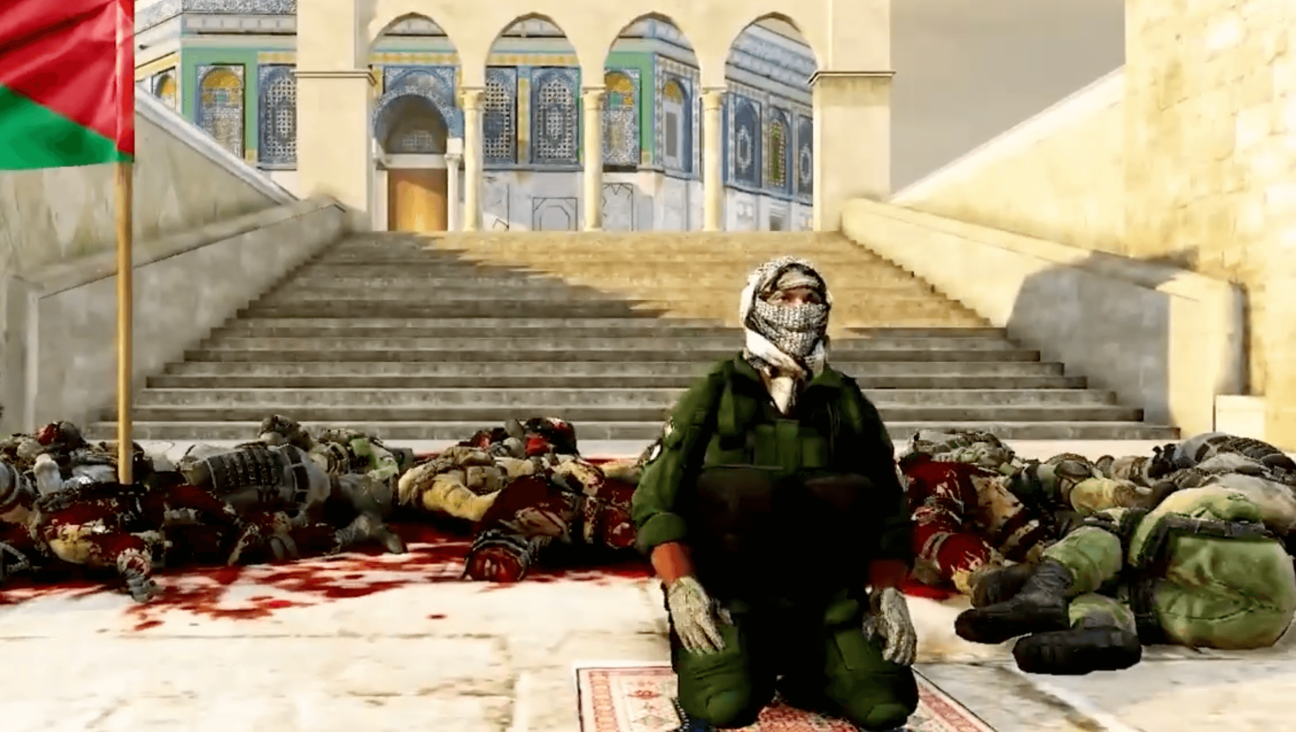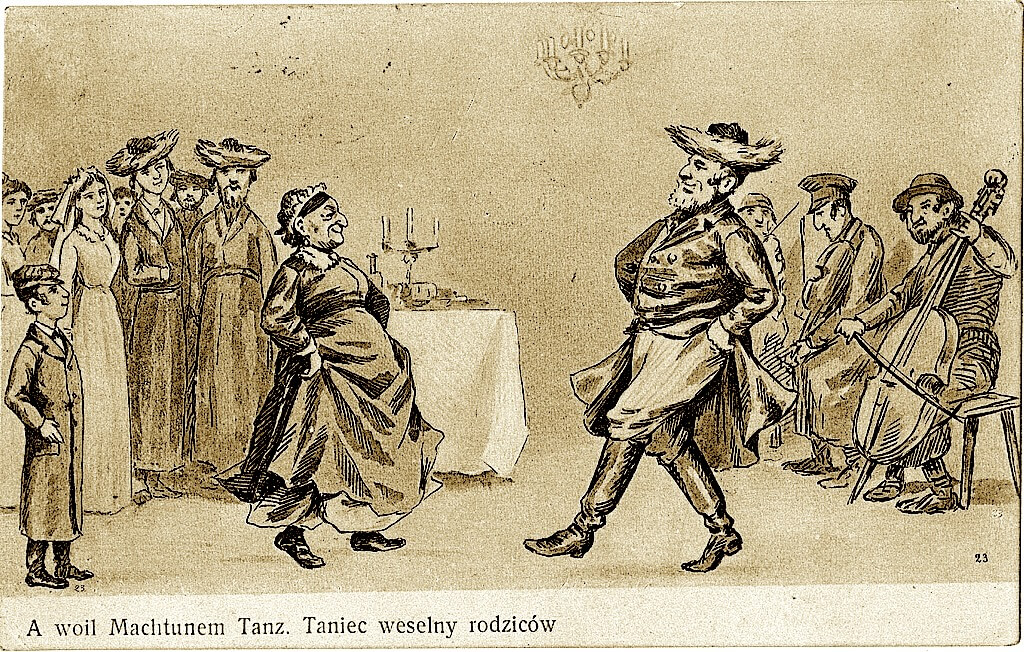A Note on Fathers

Image by Kurt Hoffman
There’s an old joke about a boy who comes running home from Hebrew school shouting: “Mommy, Mommy! I just got a part in the school play!”

Image by Kurt Hoffman
“That’s wonderful, dear,” the mother replies. “What’s the role?”
“I’m going to be playing the part of the Jewish father.”
“Don’t worry,” the mother says, “next year you’ll get a speaking part.”
I suppose the joke is mildly amusing because it traffics in the well-trod notion that a Jewish mother is pushy and assertive and a Jewish father is meek and humble. Despite Philip Roth’s demurrals that his mother was nothing like the hysterical Sophie Portnoy in “Portnoy’s Complaint,” nobody bought it. When Roth attempted to upend the image of the Jewish father in “Zuckerman Unbound,” no one bought that, either.
I can only speak from my own experience, but in my house, Dad was no pushover. In fact, I have never known anybody as brash and assertive as my old man (and that includes my balabuste mother).
This is oftentimes to his detriment. There’s nothing uglier than getting into an argument with my father. He’s a smart guy who’s tough to debate.And he’s stubborn. If he feels he’s right, he refuses to back down. This can lead to days of punishing silence.
But, on this Father’s Day, I would invite my readers to take a second look at paternal aggression. Every once in a while, it’s necessary — and sort of awesome.
One incident in particular occurred about a decade or so ago, when I was home from college for the summer. I accompanied my father to Dean & DeLuca one afternoon to do some shopping, and as he waited on the deli line, he told me to stake out a spot on the checkout line.
My arms were filled with groceries, and I stared off at some of the more shapely shoppers as I waited, thinking of nothing in particular.
“Register opening!” a checkout girl shouted.
I quickly walked over to her register and began stacking my groceries on the counter.
But before I had put them all down, an older, stout man pushed my groceries out of the way and put down his own basket.
“I was here first,” he declared, looking me in the eye, daring me to disagree.
Maybe he had been there first — I honestly don’t remember. It’s possible that he had been waiting for the other register and felt he was within his rights to take the first spot at the newly opened one. But I wasn’t in the mood for a confrontation. I decided not to object.
My adversary wasn’t at all assuaged by my nonresponse.
“You believe this guy?” he said to the checkout girl (who looked as if she really, really didn’t want to get involved). “Tried to cut in line!”
I didn’t say anything.
A moment or two later, my father huddled up next to me with more groceries and began to take out his wallet — unaware of what had happened while he was gone.
As my adversary got his receipt, he looked at me once more and snarled: “Punk!”
My father suddenly froze. He then looked up, and in no more than a moment, his face turned red.
“What did you call him?”
“You heard me.”
I put my hand on his shoulder to tell him that it wasn’t a big deal and that we should just ignore this fellow, but my father was already too far gone to be pacified.
“How dare you!” he said, taking a step toward our adversary. “Don’t you ever call my son a punk! He’s the least punklike person I’ve ever met!”
I still think back on the phrase “least punklike person I’ve ever met” lovingly. It wasn’t just a moment when my father had his emotions up and was defending his son against an outside attacker — he was defending me on aesthetic grounds, as well. He was defending my character. How could anyone view a nice teenage kid like myself as a punk? It was unfathomable for him. And the defense came without even a moment to think about the matter (maybe I was a punk — or had done something punkish). No, it was downright ludicrous to assume that I was a punk.
The guy took a step back, perhaps realizing that suddenly, the situation had become unstable. He muttered something under his breath and left.
“What happened?” my father asked. I related the incident, and my dad, the checkout girl and I all commiserated on what a jerk that guy was.
But as we stepped out of the store, our adversary was waiting — with a friend (who, I admit, was also middle-aged and soft around the middle).
“Look!” our adversary cried. “It’s the punk!”
But my father was not about to take any abuse. He stared at our adversary with cold, unblinking eyes. His body was stiff, ready for a fight. He didn’t say much, but the short sentence uttered was not something I could repeat in a family newspaper, and was spoken with the kind of fervor that would make any normal person in the world quiver.
Our adversary was unprepared for such a display of unalloyed toughness. He and his friend slunk away — having lost this confrontation decisively.
And for a moment, nothing in the whole world was quite as thrilling. I’m sure that if you asked me whom my father was more like, John Wayne or Woody Allen, I would have no problem going with Woody Allen. But at that moment, he was all John Wayne. Whoever said that Jewish fathers didn’t have sturdy spines clearly didn’t know what they were talking about. As a people, the Jews have been toughened up by many years of hardship. And I think Jewish fathers are not all that different. My father was defending himself and his son, without apologies or equivocations. How was that any different from old John Wayne, six-shooter in hand, telling the local riff-raff to stay out of his territory?
Granted, it was against a couple of middle-aged fat men, but still.
Max Gross is a reporter for the New York Post, and the author of “From Schlub to Stud: How To Embrace Your Inner Mensch and Conquer the Big City” (Skyhorse Publishing, 2008).
A message from our Publisher & CEO Rachel Fishman Feddersen

I hope you appreciated this article. Before you go, I’d like to ask you to please support the Forward’s award-winning, nonprofit journalism during this critical time.
We’ve set a goal to raise $260,000 by December 31. That’s an ambitious goal, but one that will give us the resources we need to invest in the high quality news, opinion, analysis and cultural coverage that isn’t available anywhere else.
If you feel inspired to make an impact, now is the time to give something back. Join us as a member at your most generous level.
— Rachel Fishman Feddersen, Publisher and CEO






















